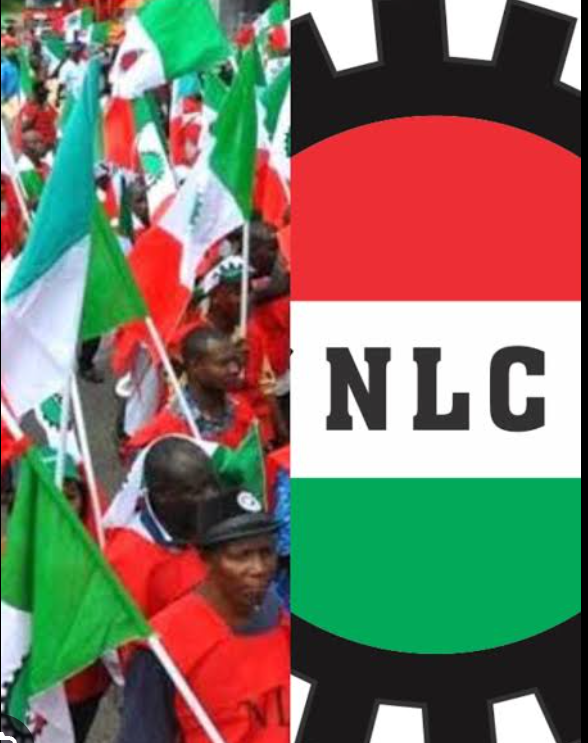News
Judiciary showcasing an undeniable decline in Nigeria- Peter Obi

Judiciary showcasing an undeniable decline in Nigeria- Peter Obi
…insists the rule of law is an intangible asset of any society
The Presidential Candidate of the Labour Party in the 2023 general elections, Peter Obi has bemoaned the state of Nigeria’s Judiciary and said it is witnessing an undeniable Decline.
The LP standards bearer notes that although there still exists few good judges and justices in the country but generally speaking, the situation is worrisome and a threat to the future of the nation.
Delivering a Keynote speech titled “The Role of the Judiciary in Shaping Nigeria’s Future” at the 5th Memorial of Justice Anthony Nnaemeka Aniagolu, at the Godfrey Okoye University, Enugu, Obi said there is a lot to learn from the integrity of the late Justice of the Supreme Court and his class of Justices.
“It was truly an honor to pay tribute to one of Nigeria’s most esteemed jurists, the late Justice of the Supreme Court, Justice Anthony Nnaemeka Aniagolu. His illustrious career, particularly as a Justice of the Supreme Court of Nigeria from 1978 to 1987, brought immense honor to our judiciary through his unwavering integrity and steadfast commitment to upholding the rule of law and ensuring justice in our nation.
“As we commemorate the legacy of Justice Aniagolu and other revered Nigerian judges, we must draw inspiration from their exemplary service. We must strive to emulate their dedication to integrity, fairness, respect for the rule of law, transparency, humility, and the dispensation of justice.
“While the judiciary today still boasts of a few outstanding judges, there is an undeniable decline in our judicial system. This decline poses a significant threat to the future of Nigeria. Justice is increasingly commodified, and delivered in favor of the highest bidder.
“When the rule of law is compromised, the most vulnerable members of society are disproportionately affected, and the fabric of our society begins to fray. The integrity of our institutions, the protection of human rights, and the stability of our nation are all jeopardized.
“The rule of law is the highest intangible and most valuable asset of any society, and we must work tirelessly to protect and preserve it. We must prioritize the pursuit of justice above all else.
“Only then can we ensure that the rule of law remains a beacon of hope and a safeguard against tyranny, oppression, and injustice. The future of our nation depends on it
“In my address to the audience, I emphasized the urgent need to revitalize our judicial system by safeguarding its independence and promoting the values of character, competence, capability, compassion, and integrity among our jurists, as well as within our political leadership. By doing so, we can ensure that justice and fairness prevail as we endeavor to build a better Nigeria for all.
Godfrey Okoye University, Enugu is a private institution owned and managed by the Catholic Church.
News
EFCC summons 146 Christian pilgrim commission officials over alleged fraud

The Economic and Financial Crimes Commission is investigating the Nigeria Christian Pilgrim Commission over an alleged misappropriation of public funds, The PUNCH can authoritatively report.
A reliable source in the anti-graft agency revealed that about 146 staff of the NCPC have been invited for questioning by the EFCC.
The invited staff of the NCPC, it was further gathered, were to report at the EFCC’s corporate headquarters from Monday, January to.
The source said, “The commission is currently investigating the NCPC and we have invited about 146 staff of the commission for questioning. They all have been assigned various dates to report at the EFCC’s headquarters and it is between Monday and Friday.”
The EFCC’s Head of Media and Publicity, Dele Oyewale, could not be reached on Sunday to confirm the report.
An internal memo from the NCPC dated January 16, imploring the invited staff to go along with their passports to the EFCC’s office.
The memo signed by Assistant Director APD, Chukwura Frank, on behalf of the Executive Secretary, was titled, ‘Re: Invitation by EFCC on investigation of misappropriation of public funds’.
It partly read, “I am directed to inform you that the Economic and Financial Crimes Commission has invited 146 officers of the Commission (both serving and retired) for an interview, and to go along with their international passports (sic) for this purpose.
“In furtherance to the above, the officers on the attached list should report to the EFCC on the dates indicated against their names for the interview with Head, Special Duty Committee 3, at EFCC Headquarters Jabi, Plot 301/302 Institution and Research District, Abuja by 10:00 am prompt
“This is for your information and strict compliance, please.”
According to the memo, those scheduled to appear include the Assistant Chief Accountant on Wednesday, January 22, 2025; the Assistant Chief Executive (Statistician), Principal Executive Officer (Accounts), Principal Accountant, Assistant Chief Administrative Officer, Assistant Chief Planning Officer, and Assistant Chief Executive (Accounts) on Thursday, January 23, 2025; and the Principal Procurement Officer, Principal Planning Officer, and Principal Information Officer on Monday, January 27, 2025, among others.
The spokesperson for the NCPC, Celestine Ogugua, could not be reached for comment as of the time of filing this report.
One of those invited contacted by our correspondent said the invitation was a routine check into the books of the commission.
He said, “It is not a new thing for us here. It is a routine exercise to check the books of the commission. It is nothing to worry about.”
News
Just in : FG Announces Deadline For Market Operators’ Registration Renewals

The Federal Government through the Securities and Exchange Commission (SEC) has reminded Capital (CMOs) to ensure that they renew their registration on or before January 31, 2025.
The Commission said this in a recent circular to ask the operators to begin this annual renewal of registration from January 1 to January 31, 2025.
The annual renewal of registration of Capital Market Operators, is aimed at ensuring that only fit and proper persons operate in the Nigerian capital market.
SEC in the secular stated, “This is to inform all Capital Market Operators (CMOs) and the general public that the annual renewal of Registration of CMOs for the year 2025 will commence from January 1, 2025.”
The Commission emphasized that CMOs without valid registration will be penalized and may be excluded from carrying out capital market activities.
The SEC had in 2021 re-introduced periodic renewal of registration by capital market operators, which was premised on the need to have a reliable data bank of all CMOs registered and active in the Nigerian capital market.
The aim was to provide updated information on operators in the Nigerian capital market for reference and other official purposes by local and foreign investors, other regulatory agencies and the public.
The renewal was also introduced to increasingly reduce incidences of unethical practices by CMOs such as may affect investors’ confidence and impact negatively on the Nigerian capital market, as well as strengthen supervision and monitoring of CMOs by the commission.
Consequently, the SEC amended its rules and re-introduced the requirement for yearly registration renewal by all CMOs, which is carried out electronically to ensure efficiency.
News
NLC Condemns Recent Petrol Price Hike, insists it’s insensitive

The Nigeria Labour Congress (NLC) has condemned the recent hike in the price of petrol, describing it as insensitivity against the masses.
Following the hike in the cost of the commodity by the Dangote Petroleum Refinery and various depot owners, the pump prices of petrol rose to between ₦1,050 and ₦1,150 per litre.
Reacting to the development, the Deputy President of NLC Political Commission, Theophilus Ndubuaku told Punch that in saner climes representatives of workers, the organised private sector and students would have been consulted before making a decision to increase the fuel price.
He argued that in an inclusive government, one person should not be the one calling the shots. Ndubuaku lamented that when people speak up attack dogs are sent after them and they are labelled members of the Obidient Movement.
He said, “This pump price hike will not only affect foodstuff and fare. There is the problem of inflation and the value of naira to contend with. Instead, what we are seeing is a situation we call Tinubunomics. It is something that has not been tested.
“When you talk about subsidies, is there a country that doesn’t have it? It’s all over the world. Even most of the goods you see in this country from China are subsidised. You are refusing to subsidise fuel and also refusing to even facilitate the so-called CNG buses. How many years does it take to do something like this?
“If you know the kind of game we (the NLC) and them are playing on this CNG thing. Now, they are not even involving the people in the so-called CNG conversion. If you promise to run an inclusive government, It’s not just you that should be doing the talking. Yet, when somebody talks, they send attack dogs to attack and label him a member of the Obidient movement.”
Borrow Obasanjo Template
Continuing, Ndubuaku emphasised that President Bola Tinubu will do well to borrow the template of former leaders like Olusegun Obasanjo, who he claimed held a monthly roundtable with stakeholders whenever sensitive issues that have a lot to do with workers’ welfare were being discussed.
“Such discussions were held in the Villa. Every month people would be invited and issues would be discussed. We’re not saying you shouldn’t do it. But please, carry people along. Let us know why you want to do these things so people will be prepared.
“But you can’t just keep changing the prices without any regard for us? This is what is causing all this frustration. They are not carrying the masses along. They have virtually made it difficult for the NLC to be involved in anything they are doing. Nigeria is not the personal property of anybody.
“If you are going to do anything that will involve the masses, you should call the people who represent the workers at least. You have certain blocks and groups of people in this country that have representatives, even in the so-called business sector that you can talk to,” he explained.
-

 Metro16 hours ago
Metro16 hours agoFather And Daughter b3headed Over Land Dispute In Delta Community
-

 News16 hours ago
News16 hours agoBanditry: Bandit Leader Bello Turji Reportedly On the Run, Son Wasted Amid Military Offensive
-

 News24 hours ago
News24 hours agoCLARIFICATION: Wike’s aide rubbished claim on his principal’s alleged trip to UK
-

 News24 hours ago
News24 hours agoSAD! Two Judges shot dead in Court as attacker takes own life
-

 Politics16 hours ago
Politics16 hours agoEdo Guber Election Petition Tribunal to Reconvene Tomorrow
-

 News24 hours ago
News24 hours agoCatholic church suspends priest over alleged secret marriage in US
-

 News11 hours ago
News11 hours agoReps Direct Ministry of Health to Provide Detailed Report on Nutrition Interventions Amid Malnutrition Crisis
-

 News16 hours ago
News16 hours agoHajj: CSO lauds NAHCON’s selection of new Saudi-based service provider








